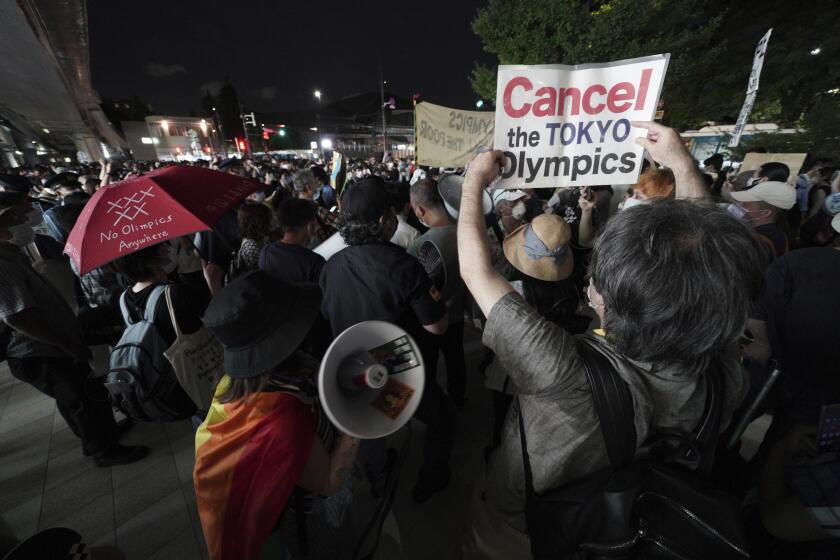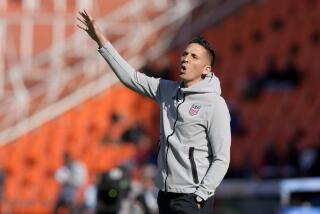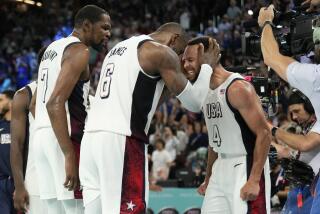This isn’t Magic, Michael and Larry: U.S. basketball trying to beat the odds in Tokyo
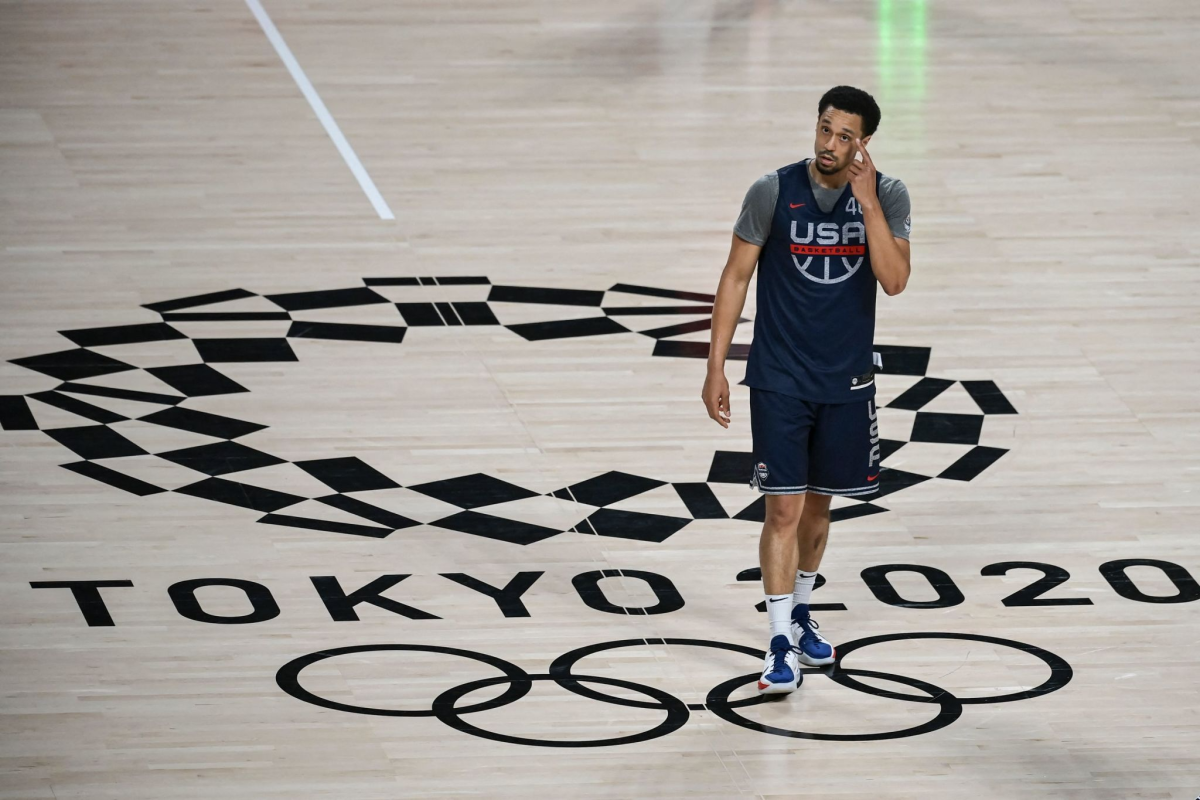
- Share via
TOKYO — They lost twice in exhibitions in the build-up to the Olympics. One starter had to withdraw because of COVID-19 protocols. And numerous others passed on the event because of injury or indifference.
Magic, Michael and Larry this is not.
But with a quarter of his team still relative strangers to the ones who have been training in Tokyo, U.S. men’s basketball coach Gregg Popovich resisted the urge to send them orientation materials, instead asking NBA Finals participants Devin Booker, Khris Middleton and Jrue Holiday to get some sleep on their flight to Japan.
Forget about showcasing Japanese ingenuity to the world. The people in Tokyo can’t even be convinced that the Olympics will offer any value to them.
Well, maybe this is a dream team after all.
One of the safest Olympic bets doesn’t seem so safe this time. The U.S. men’s team is slowly inching toward completion in the moments before Sunday’s tournament opener against France, the team that knocked them out of medal contention at the 2019 world championships.
“These circumstances are so unique,” U.S. assistant coach Steve Kerr said about having 25% of the team’s players still in America.
Booker, Middleton and Holiday all committed to play despite playing in the Finals, and despite the trans-Pacific flight, they’re expected to be available Sunday night in Tokyo.
The trio’s commitment to their day jobs has meant the U.S. team enters competition having never competed together. And despite losses to Nigeria and Australia in their pre-Olympic exhibition schedule, they’re still considered favorites.
Still, it’s easy to see vulnerability.
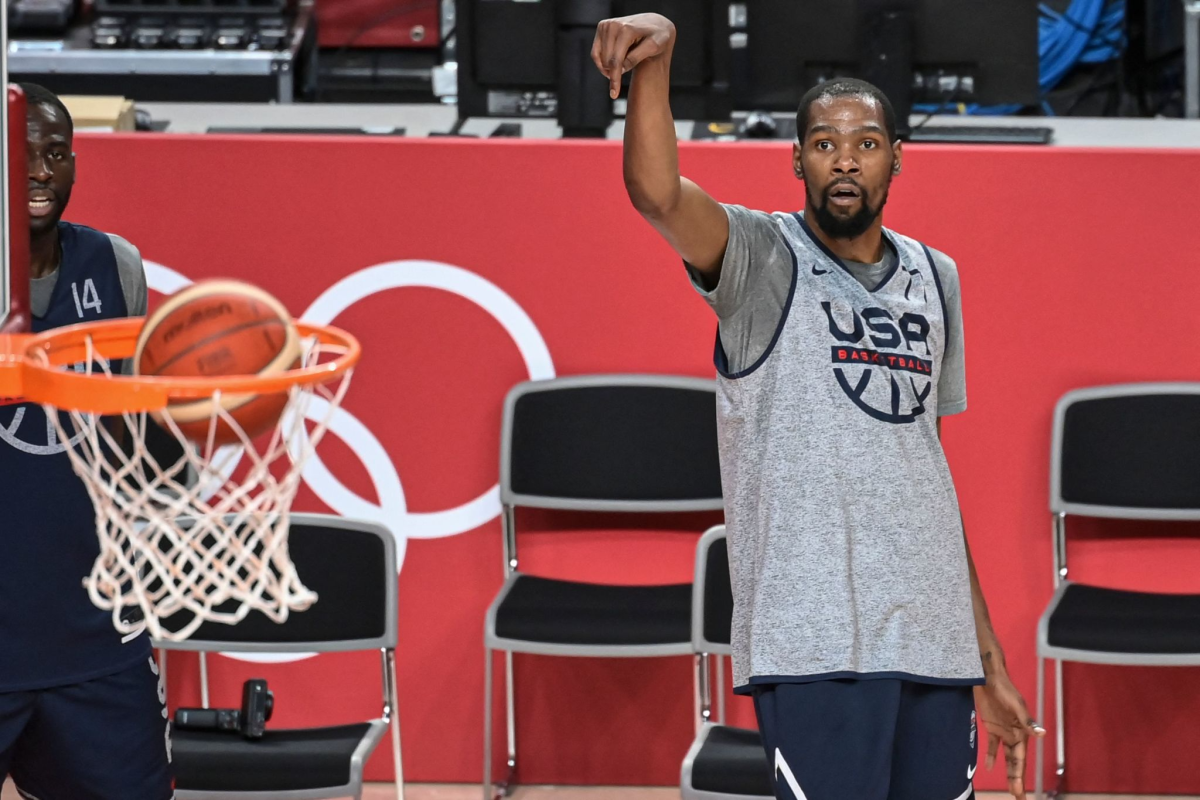
There was the trouble in the 2019 world championships, the first major international tournament where the U.S. didn’t medal since the 2002 worlds. The men’s team followed that competition by winning the bronze in the 2004 Athens Games — one of three times the U.S. men haven’t won gold in the Olympics.
This summer they enter play with Luka Doncic and Slovenia, Marc and Pau Gasol on an experienced Spanish team, an NBA-heavy Nigerian roster and an established Australian team with pros such as Joe Ingles, Patty Mills and Matisse Thybulle.
“Everybody wants to beat us,” Kevin Durant said. “Everyone wants to see us lose so every game has a little more pressure to it. A lot of guys dropped out. A lot of circumstances. I’m sure other teams have seen us lose and feel confident coming into the tournament. But, we understand what we’re getting ourselves into and looking forward to the challenge.”
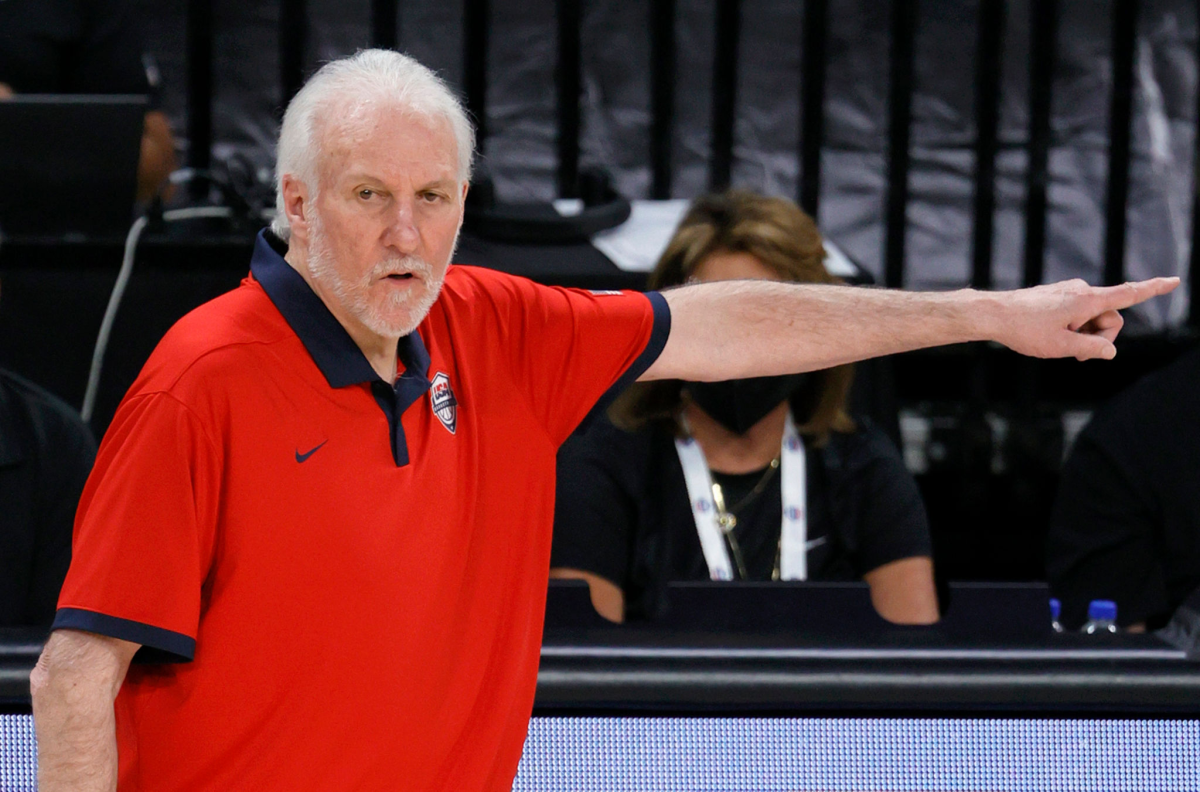
“Less is more … Inventing the wheel would be the worst thing we could do for this group.”
— Greg Popovich, U.S. men’s basketball coach
Durant and Portland Trail Blazers guard Damian Lillard are the headliners after players such as LeBron James, Anthony Davis and Stephen Curry skipped the Games. Bradley Beal was expected to be one of the offensive pillars, but he had to withdraw after going into COVID-19 protocols. And Kevin Love was chosen to give the team depth and a veteran presence, but he withdrew citing a calf injury.
All of that meant the addition of five new players — three coming from the Finals and Keldon Johnson and JaVale McGee joining the roster — in the days leading up to the competition.
It’s forced Popovich to streamline a strategy for a team of relative strangers compared to more established national teams.
“Less is more,” Popovich said with his signature frankness. “…Inventing the wheel would be the worst thing we could do for this group.”
Inventing anything could be tough, despite some positive momentum in their final two exhibitions — wins over Argentina and Spain.
“We’re not going to have a ton of plays,” Kerr said. “That would be impossible.”
In 1992 when the USA brought its best to Barcelona, the talent gap was immense. It still exists, though the gap is ever shrinking — the exhibition schedule helped prove that.
“We’re understanding what coach wants from us on both ends of the floor,” Durant said. “I feel like guys are getting more comfortable with each other and their roles on the team and that’s only going to bode well for us as we start to play real games. It was good to get a punch in the mouth early on, to remind us that it’s not going to be a cake walk. So many people are used to Team USA coming in and blowing everybody out so it’s good for us to see that. Hopefully, those are the last losses.”
More to Read
Go beyond the scoreboard
Get the latest on L.A.'s teams in the daily Sports Report newsletter.
You may occasionally receive promotional content from the Los Angeles Times.

